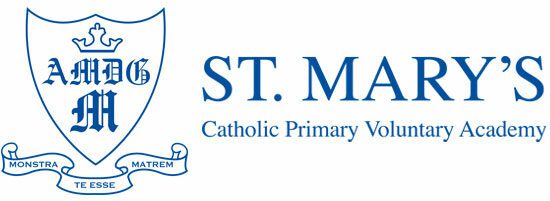British Values
British Values Statement
As a Catholic school, Saint Mary’s seeks to live out the values of Jesus Christ.
We promote these values by our words and deeds, and Catholic doctrine and practice therefore permeates every aspect of the school’s activity. We provide a Catholic curriculum, which is broad and balanced, recognising that every pupil is unique and is created in the image of God (Gen1:27). Our curriculum is designed to enable every pupil to discern their vocation and to bewell-equipped to follow it as active citizens in service to the world. Catholic Religious Education is the “core of the core curriculum” (Pope St John Paul II) 4 and the foundation of the entire educational process. We also provide a wide range of extra-curricular activities and strong pastoral support. We incorporate democratic principles, value the rule of law, support individual liberty and foster a community in which different faiths and beliefs are respected.”
We do this by:











